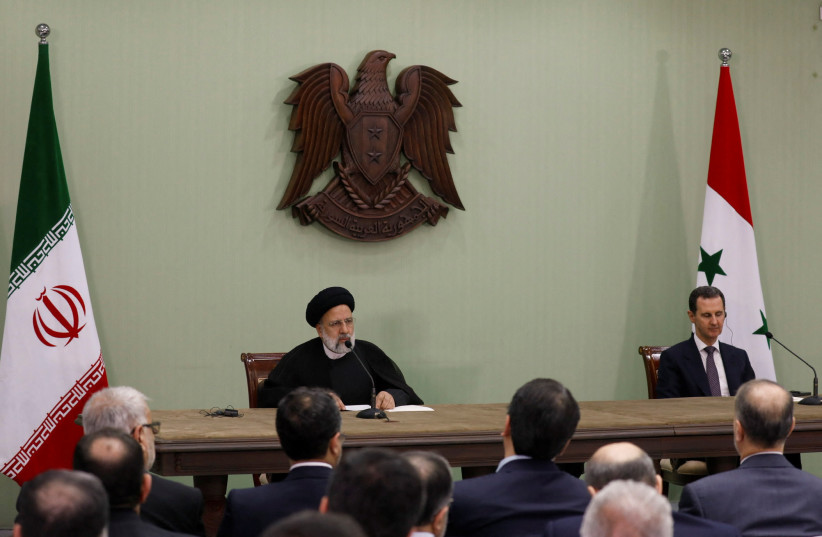For many years, Iran’s regime put forward a narrative that it was on the winning side of history. It claimed the US was in decline and Israel would soon be destroyed. None of this came true the way Iran believed it would, but Tehran today looks around the Middle East and feels that it has been, at least in part, proven correct.
This is because Iran’s allies in Syria are now moving back toward the Arab League and Iran’s president just returned from Damascus while its foreign minister was in Beirut.
Iranian media has published in recent days some examples of how it looks at the region. For instance, Mehr News says that Maj.-Gen. Mohammad Bagheri traveled to Oman over the weekend along with a delegation to strengthen defense ties with the Gulf state. “Emphasizing that the development of regional and defense diplomacy is one of the important indicators of world diplomacy, he said that the expansion of regional diplomacy of the Islamic Republic of Iran with regional countries is indeed a win-win strategy.”
The report says that Iran is pushing a concept here that is designed to prevent the “interference” of other states.
In another article, Iran has boasted of improving ties with countries that were part of the Abraham Accords. The article notes Israel’s ties with the UAE, Bahrain and Morocco and even hints at “the cusp of another deal with Saudi Arabia.”

However, Iran now believes it has turned a corner on this trend and that Iran has been the one to reconcile ties with the Saudis. “The new reconciliatory atmosphere in the region was on full display during the recent visit by President Raisi to Syria, where he laid the groundwork for strong, longstanding relations with Syria at a time when the Arab country is moving back to the Arab fold,” the report notes.
The article also praises IRGC Quds Force head Ismail Ghaani, who replaced Qasem Soleimani in 2020 when the latter was killed by the US. “In an important development that is expected to further deepen Israel’s isolation, Syria was readmitted to the Arab League on Sunday,” the report says.
Iran on Israel's decline: An "Israeli Winter" contrasts the "Arab Spring"
Thus Iran sees its new initiatives in Lebanon, Syria, Oman and other places, in direct competition with Israel. Iran views this as a zero-sum game; it gains and Israel loses, or vice-versa. Iran also believes Israel is declining due to its own political chaos within its borders.
The Raisi visit to Syria showcased Iran’s messaging on this issue. Tasnim News published a statement from the visit describing the countries cooperating against regional “enemies,” which was a reference to Israel. Iran sees this moment as a turning point.
Iran believes that Israel is now entering an “Israeli winter” in contrast to the failed “Arab spring.” In essence, Iran is mocking the 2011 Arab protests and celebrating what it sees as Syria’s victory over the forces let loose in 2011. Iran believes Israel tried to benefit from the Arab Spring.
Iran asserts that it has worked over the last 12 years to unify various “resistance” against Israel, including Palestinian groups in Gaza, the West Bank, Lebanon and Syria; along with Hezbollah and various militias in Syria and Iraq. Iran believes Israel failed to defeat the Palestinians and that today Hezbollah is a “bayonet” aimed at Israel. “Hezbollah has moved from the defensive phase to the offensive phase in the equation of the conflict with Israel, and the practical example of the new equation of Lebanese resistance can be seen in the drone operations of this party against naval positions.”
Iran believes that Hezbollah now deters Israel. It also has been watching Israeli reactions to the Iranian efforts to return the Syrian regime to the Arab League.
